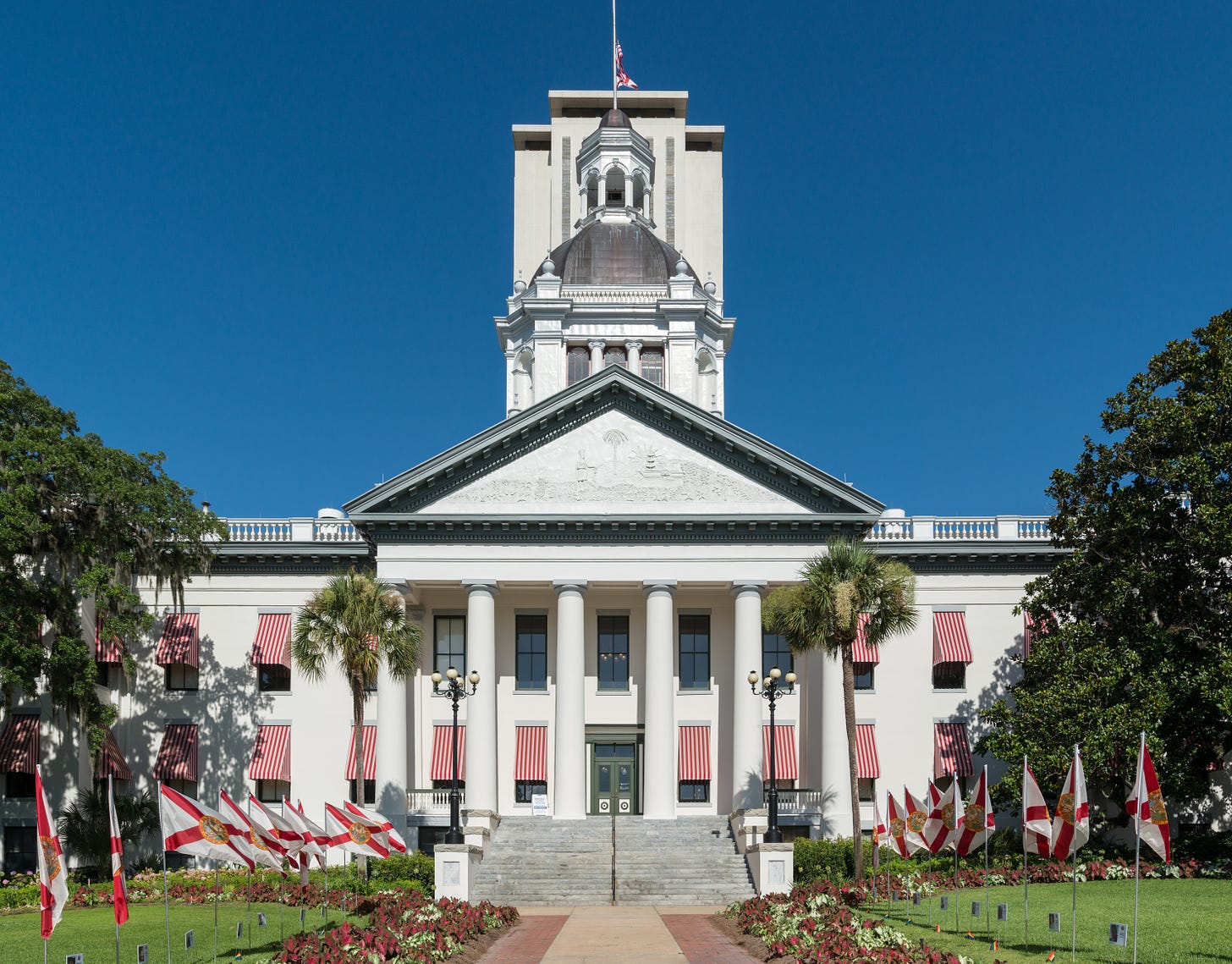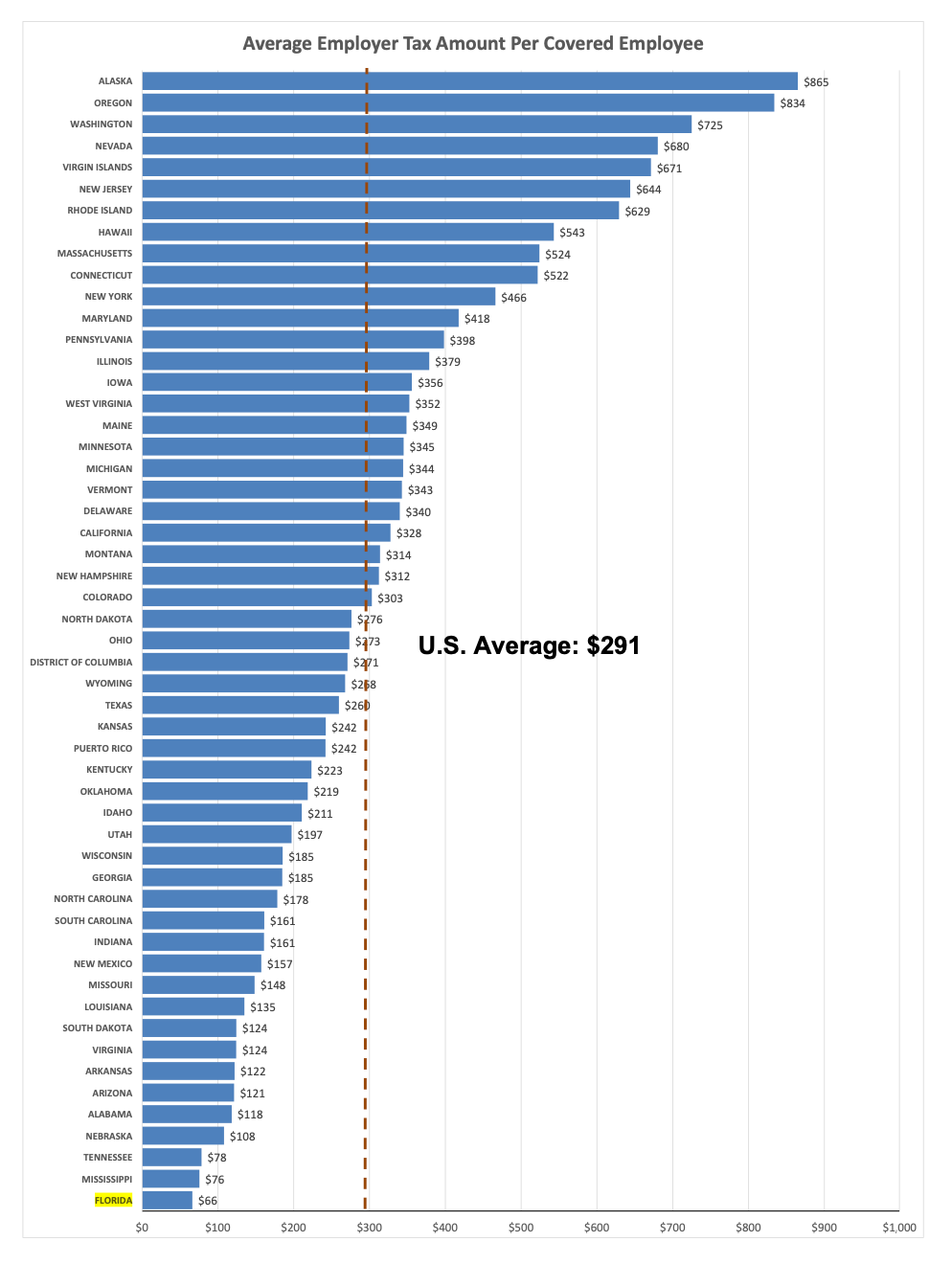Prodded by business lobbyists, lawmakers may cut more Floridians off from unemployment insurance
Florida's big-business lobby resumes a more than decade-long assault on unemployment support for workers.

This is Seeking Rents, a newsletter and podcast devoted to producing original journalism — and lifting up the journalism of others — that examines the many ways that businesses influence public policy across Florida, written by Jason Garcia. Seeking Rents is free to all. But please consider a voluntary paid subscription, if you can afford one, to help support our work.
Cheered on by lobbyists for some of the state’s biggest corporations, Republican lawmakers in Florida are poised to cut off access to unemployment insurance for more Floridians who have lost their jobs through no fault of their own.
The state House of Representatives will hold an initial hearing Tuesday morning on a bill (House Bill 1289) that would give state officials more power to deny unemployment benefits to laid-off workers. A similar bill (Senate Bill 1260) is already moving through the Florida Senate.
The unemployment legislation appears to be a priority for some of Florida’s largest business-lobbying groups and a billionaire-backed think tank. The same coalition is simultaneously pushing separate bills through Florida’s GOP-controlled Legislature this session that would weaken the state’s child-labor laws and strip wage-and-benefit protections from Florida workers.
Kicking Floridians off unemployment insurance amounts to a tax break for businesses. That’s because unemployment benefits are financed by a state tax on employers; fewer payments for workers equals lower taxes for businesses.
The new legislation is the latest advance in a more than decade-long assault on unemployment benefits by the state’s big-business lobby — a lobbying campaign that has left working families in Florida with one of the most difficult-to-access and poorest-paying safety nets in the nation.
Fewer than 12 percent of out-out-work Floridians are receiving any unemployment assistance at all, according to federal data compiled by The Century Foundation. Only six other states deny benefits to a larger share of their workers.
And when a laid-off worker does make it through Florida’s qualification gauntlet, the state provides them with just 30 percent of their lost wages on average, the Century Foundation data show. Just five other states provide less support.
But on the other hand, businesses in Florida get to pay the lowest unemployment taxes in the country — by a mile. Florida charges businesses an average of just $66 per employee, according to the U.S. Department of Labor. The next-lowest state, Mississippi, charges $76. The national average is $291.

This year’s bills expand on a sweeping overhaul of Florida’s unemployment system that former Gov. Rick Scott and corporate lobbyists muscled through the Legislature in 2011, following the housing and banking collapses and the Great Recession.
That 2011 law slashed the amount of money Florida workers are paid through unemployment insurance. But it also imposed a host of new obstacles to obtaining benefits in the first place — such as a requirement that a person collecting unemployment contact at least five new prospective employers each week in order to keep getting their payments.
That’s already unusually strict: Florida is one of just four states in the country that mandates five weekly contacts as a condition of unemployment support.
But HB 1289 and SB 1260 would make things even more onerous for workers.
The Senate bill, for instance, would also force a person receiving benefits to fill out one new job application every week. And they’d have to fill out the application in person; no online job applications would be allowed.
That’s not all. The Senate bill would also require Floridians complete a mandatory skills test before they can begin receiving benefits.
This is something Rick Scott tried in 2011, too. But the state-imposed test proved to be so cumbersome, complicated and discriminatory that officials with the U.S. Department of Labor warned that it was probably illegal under federal law. So Scott and the Legislature backed down in 2014, and made the skills exam optional instead of mandatory.
The current version of the House bill also calls for mandatory skills tests and weekly, in-person job applications. But the House Regulatory Reform & Economic Development Subcommittee, which will meet Tuesday morning at 8, is likely to take up an amendment that would erase those parts of the bill.
Instead, the House appears likely to focus on giving state officials more power to disqualify workers from unemployment assistance.
Specifically, the bill would allow the state to deny payments to workers who miss three scheduled job interviews or who fail to respond to an offer of employment within 48 hours, among other reasons.
This is an idea being pushed nationally by the Foundation for Government Accountability, an anti-worker think tank, which claims that U.S. workers are “ghosting” employers in order to continue receiving unemployment benefits. Though the FGA is a non-profit that does not disclose its donors, tax records show that its largest funder in recent years has been Richard “Dick” Uihlein — the billionaire founder of shipping-supply company Uline and one of Florida Gov. Ron DeSantis’ biggest donors.
No one from the FGA — which lobbies through a related organization called the Opportunity Solutions Project — has publicly testified on the legislation, although disclosure records show the organization is lobbying on the bill in the state House.
The only entity to publicly support the bill so far is the Florida Chamber of Commerce, one of the state’s biggest business-lobbying groups. The Florida Chamber represents major employers like Publix Super Markets, Walt Disney World and Comcast Corp.
It’s also a major campaign contributor: Records show political committees controlled by the Florida Chamber gave more than $1.3 million to members of the Florida Legislature in the months leading up to this year’s session.





Way to go FL GOP. Bite the hands that feed you! Keep it up,you'll help turn FL Blue. Slowly chipping away at people's rights.
Between the abortion issues, unemployment compensation, LGBTQ+ laws, book banning, cronyism, Christian Nationalist education parameters, migrants treated as outcasts, property insurance problems, and all the other goings-on in Florida now, why would anyone in their right mind choose to continue living there?
Disney may have to move its theme parks before this is over.